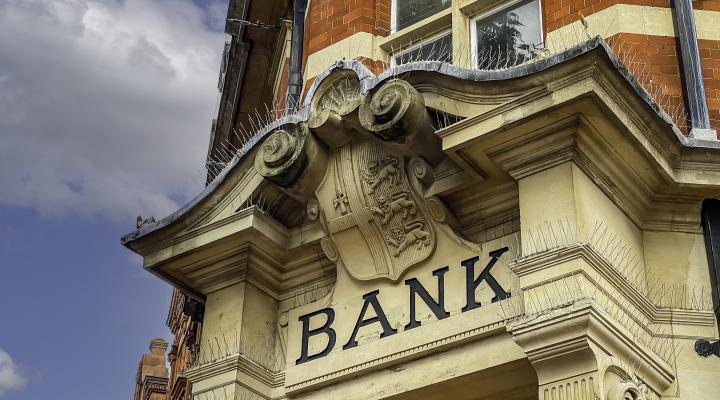Types of Banks in the U.S.

You have options when choosing where to keep your money and what type of financial institution to bank with. Here are the main types of banks in the U.S.:
Retail Banks
Retail banks, also known as commercial banks, are the most common type of banks. They serve individuals, small businesses, and large corporations. Retail banks provide services such as checking and savings accounts, loans, credit cards, mortgages, and other financial products. They have physical branches, online banking platforms, and ATMs. The largest retail banks in the U.S. are JP Morgan Chase, Bank of America and Citi.
Credit Unions
Credit unions are not-for-profit financial cooperatives owned and operated by their members. They serve specific communities, such as employees of a certain company, members of an organization, or residents of a particular geographic area. Credit unions offer similar services to retail banks, including savings accounts, loans, and other financial products. They often provide more personalized service and may offer lower fees and higher interest rates on savings accounts.
Online Banks
Online banks operate entirely over the internet without any physical branches. They offer a range of banking services, including checking and savings accounts, loans, and investment options. Online banks often provide higher interest rates on savings accounts and lower fees since they have lower overhead costs. However, they may not offer in-person customer support or physical cash deposit options.
Investment Banks
Investment banks primarily cater to corporations and institutional clients rather than individual consumers. They specialize in providing financial advice, underwriting securities, facilitating mergers and acquisitions, and assisting with capital raising through stock and bond offerings. Investment banks play a crucial role in the capital markets and are involved in complex financial transactions.
Savings and Loan Associations
Savings and Loan Associations (S&Ls) focus on providing mortgage loans and other home financing options. They accept savings deposits and use the funds to provide mortgages to homebuyers. S&Ls played a significant role in the U.S. housing market, but their prominence has decreased since the financial crisis of 2008.
Having different types of banks matters
The differences between each of these banking options matters depending on your financial interests and needs. Here are some of the reasons why:
Diverse Needs: Different individuals and businesses have unique banking requirements. For example, a small business owner may benefit from a bank that offers specialized business services, while a student may prefer a bank with low fees and convenient online banking options. The availability of various types of banks allows customers to find the one that best suits their needs.
Accessibility: The presence of different banks ensures broader access to banking services. Retail banks with physical branches are essential for those who prefer face-to-face interactions and require services like cash deposits or in-person customer support. Online banks, on the other hand, offer convenient services for those who prefer digital banking or lack access to physical branches.
Competitive Environment: Having a variety of banks fosters competition in the banking industry. Competition can lead to better interest rates, lower fees, improved services, and innovative products. It gives customers more options to choose from and encourages banks to strive for better customer satisfaction.
Specialized Services: Different types of banks specialize in specific areas, such as mortgage lending, investment banking, or serving specific communities. This specialization allows customers to work with institutions that have expertise in their specific financial needs, ensuring tailored solutions and better support.
It's important to research and compare different banks to find the one that aligns with your financial goals and needs. Consider factors like services offered, fees, accessibility, interest rates, and customer reviews before making a decision.
Frequenlty Asked Questions
What are the main types of banks in the U.S., and what services do they offer?
The main types of banks in the U.S. include retail banks, credit unions, online banks, investment banks, and savings and loan associations. Retail banks provide a wide range of services for individuals and businesses, including checking and savings accounts, loans, and credit cards. Credit unions offer similar services but often with better rates and lower fees. Online banks operate without physical branches, providing high interest rates and lower fees. Investment banks focus on services for corporations such as underwriting and financial advisory. Savings and loan associations primarily provide mortgages and other home financing options.
How do different types of banks cater to specific customer needs?
Different banks cater to diverse customer needs by offering specialized services. Retail banks are versatile, serving both individual consumers and businesses. Credit unions target specific communities offering personalized services. Online banks suit customers who prefer digital banking without the need for physical branches. Investment banks are ideal for large corporate clients needing complex financial services, and savings and loan associations focus on home financing. This specialization ensures customers can find financial solutions tailored to their specific requirements.
What are the benefits of having a variety of banks in the U.S.?
The diversity of banks in the U.S. creates a competitive, accessible banking environment. It provides customers with options that cater to different preferences, such as the need for face-to-face service or digital-only banking. Competition among banks leads to better interest rates, lower fees, improved customer service, and innovative banking products. This variety ensures that all consumers and businesses can find banking solutions that suit their needs and enhance their financial wellbeing.
The information provided on www.onepercentforamerica.org is intended for general informational purposes only. It should not be considered as professional advice or a substitute for seeking professional guidance.
